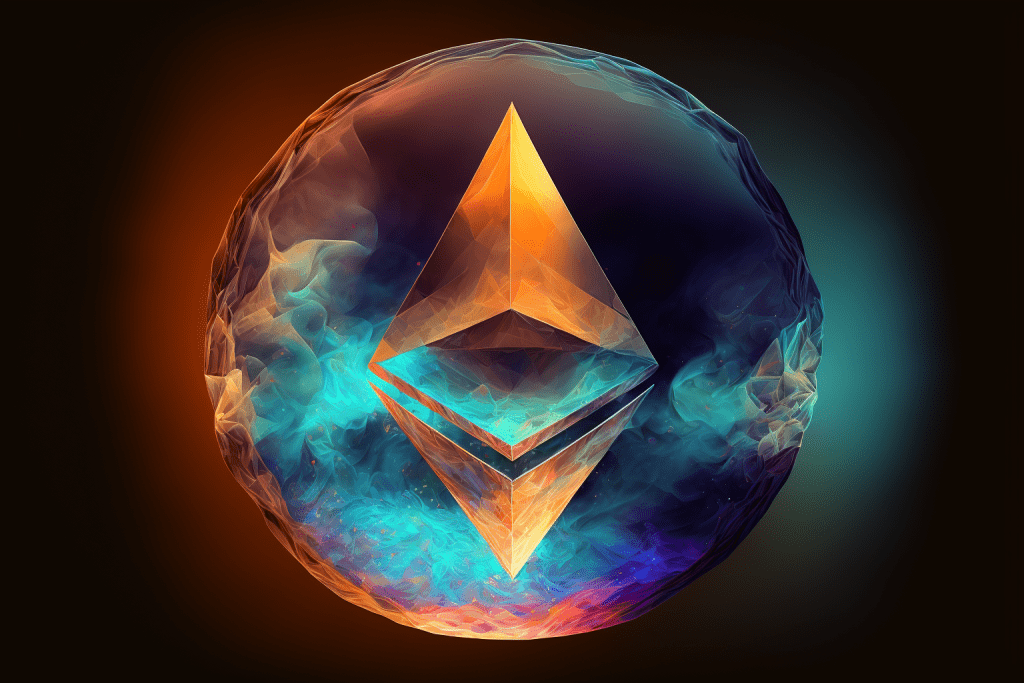
What Is Ethereum?
Ethereum was the first smart contract platform ever created, and at the time of this writing, it currently has the most adoption.
The creation of Ethereum and the “smart contracts” it enabled lead to a tech development boom.
While the Ethereum developers weren’t the first to come up with the concept of smart contracts (a term initially coined by a computer scientist named Nick Szabo in the 90’s), their platform and associated “Solidity” programming language made them possible.
Prior to Ethereum, most of the alternative cryptocurrencies to Bitcoin were similar in nature. They were simply just coins to be sent back and fourth.
With these self executing contracts, developers were able to unlock more of the potential use cases for blockchain tech. Here are 10 examples..
- Real estate transactions: Smart contracts can be used to facilitate the buying and selling of real estate. There are several Ethereum based applications that cater to this niche. “Propy” being one of them.
- Supply chain management: Smart contracts can be used to automate the tracking and management of goods as they move through the supply chain. Vechain is an example of a blockchain that specializes in this.
- Employment contracts: Smart contracts can be used to automate the administration of employment contracts, including the payment of wages and keeping track of how the employee performs.
- Insurance contracts: Smart contracts can be used to automate the claims process for insurance policies.
- Health records: Smart contracts can be used to securely store and manage electronic health records. Unfortunately, blockchain tech will likely be utilized for tamper proof “vaccine passports” in the future (if the general public puts up with it).
- Voting systems: Smart contracts can be used to automate the process of voting, including the registration of voters and the counting of ballots (makes you wonder why we’re not already doing this on the governmental level). I discuss this more in an article entitled: 5 ways blockchain tech can stomp out corruption.
- Music rights: Smart contracts can be used to automate the licensing and royalty payments for music, ensuring that the artists are fairly compensated for their work.
- Crowdfunding: Smart contracts can be used for crowdfunding purposes. We saw this on a large scale during the ICO craze of 2017. Developers from hundreds of different projects raised millions of dollars worth ETH during their initial coin offerings.
- Escrow services: Smart contracts can be used to automate the process of holding funds in escrow. No trusted third party required anymore. Once certain conditions are met, the funds automatically get released.
- Predictive markets: Smart contracts can be used to create decentralized predictive markets, allowing users to make bets on the outcome of events and the likelihood of future occurrences.
As you can see, smart contracts enable some impressive functionality. In time, once mass-scale adoption takes hold, they will change the way we conduct business and interact with each other.
There are currently thousands of decentralized applications being worked on that are based on these use cases. The majority of these apps are on Ethereum, though many developers are making the shift over to some of the newer and faster platform alternatives.
Who Started Ethereum?

The “face” of Ethereum is a Russian-Canadian programmer named Vitalik Buterin. Vitalik published the whitepaper in 2013. In it, he described the vision for a way to create a more general-purpose blockchain platform that could be used to build a wide range of decentralized applications.
Vitalik wasn’t acting alone though. He had several co-founders, one of them being Dr. Gavin Wood. Gavin, who has since went on to create Polkadot, was the author of the Ethereum “yellow paper”. The “yellow paper” essentially just went into more detail regarding how all the technical aspects of the platform were going to function.
A tech entrepreneur named Joseph Lubin was also involved. Lubin served as the CEO of ConsenSys, which is software company that builds decentralized apps on the platform.
Charles Hoskinson is another well known founder, though he moved on in 2014 and has since founded a competing smart contract platform called Cardano. Charles is a mathematician who has a popular Youtube channel where he discusses the industry happenings and gives technical breakdowns of various projects.
There are two other co-founders of Ethereum; Anthony Di lorio and Mihai Alisie. Both are entrepreneurs and well known speakers. Anthony is the CEO of Decentral, a software company that builds decentralized technologies and Mihai served as the editor-in-chief of Bitcoin Magazine, one of the first publications dedicated to covering Bitcoin and blockchain technology.
What Partnerships Does Ethereum Have?
Being the first smart contract platform, Ethereum had a head start in attracting partnerships and development. There’s a massive amount of applications that have been built on it over the years, and some of the largest companies in the world are utilizing (or plan to utilize) the technology.
Here are a few examples..
- Accenture: A global professional services company that is using Ethereum to build blockchain-based solutions for its clients.
- BP: A multinational oil and gas company that is using Ethereum to develop a blockchain-based platform for tracking and trading carbon credits (a cashless economy based on carbon credits seems to be the desired goal for the central bankers and oligarch WEF members).
- ConsenSys: A software company that builds decentralized applications on Ethereum. As mentioned above, one of the Ethereum co-founders, Joseph Lubin, is the founder of ConsenSys.
- Deloitte: A global professional services company that is using Ethereum to build blockchain-based solutions for its clients.
- ING: A multinational financial services corporation that is using Ethereum to develop a platform for trade finance.
- JPMorgan Chase: A multinational investment bank that is using Ethereum to develop Quorum, an enterprise-grade blockchain platform.
- Microsoft: A multinational technology company that is using Ethereum to build blockchain-based solutions for its Azure cloud computing platform.
- Santander: A multinational bank that is using Ethereum to develop a platform for international payments.
As you can see, Ethereum has some big players who use (or plan to use) it for a variety of purposes.
When considering which companies are utilizing Ethereum, you should also look into who is building on the “layer 2’s” that are built on top of it. Polygon being an example.
Transition from Proof of Work to Proof of Stake
In September 2022, Ethereum transitioned from proof of work to proof of stake. This event was known as “The Merge”. It was successful, and it changed the consensus protocol of the platform.
To learn about the difference between proof of work and proof of stake, click here.
Overall Thoughts
I view these projects through the lens of someone who values individual liberty. When I see anti-freedom entities such as the World Economic Forum partnering up with any of these projects, I can’t help but be suspicious.
Ethereum is one of the few projects listed as a partner on the WEF website. The executive director of the Ethereum foundation, Aya Miyaguchi, also has direct WEF ties. She even has a profile on the WEF website.
I can’t help but think that Ethereum might end up being a some sort of bait and switch. Even their logo is a pyramid, which should be relevant to anyone who understands the type of symbolism these people use.
Having said that, do I think it’ll be around for a while? Most likely. It has survived through 2 brutal bear markets, and he has bounced back to new highs each following bull cycle. Also, having the backing of such large industry players shows that it likely has some staying power.
One thing to be skeptical of, however, is the fact that two of the original co-founders (who understand the limitations of the protocol inside and out) decided to build new projects of their own from the ground up rather than continue to work on Ethereum. These new projects of course being Polkadot and Cardano.











